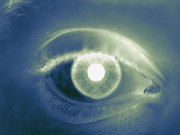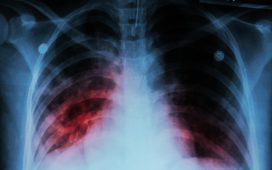Case series IDs three patients who developed uveal effusion within one to two months of initiating tx
THURSDAY, May 10, 2018 (HealthDay News) — Patients receiving immunotherapy with antiprogrammed cell death protein-1 (anti-PD-1) and antiprogrammed cell death ligand-1 (anti-PD-L1) monoclonal antibodies may develop uveal effusion, according to a report published online April 12 in JAMA Ophthalmology.
Merina Thomas, M.D., from the University of Michigan in Ann Arbor, and colleagues describe three patients who developed uveal effusion after initiation of anti-PD-1 and anti-PD-L1 monoclonal antibody therapy. The patients were two white men aged 52 and 85 years with metastatic cutaneous melanoma and a 68-year-old African-American man with metastatic adenocarcinoma of the lung. All three patients were receiving anti-PD-1 and anti-PD-L1 monoclonal antibody therapy.
The researchers found that all three patients developed uveal effusion within one to two months after initiation of anti-PD-1 and anti-PD-L1 monoclonal antibody therapy. In six to 12 weeks after discontinuation of systemic therapy, uveal effusion resolved completed in two patients; uveal effusion persisted in one patient who continued therapy.
“Uveal effusion should be considered in patients taking anti-PD-1 and/or PD-L1 monoclonal antibody therapy,” the authors write. “Because of the role of the PD-1 pathway in the inhibition of self-reactive T cells, PD-1 inhibition might lead to inflammation because of immune-related adverse effects.”
One author disclosed financial ties to Castle Biosciences.
Copyright © 2018 HealthDay. All rights reserved.








